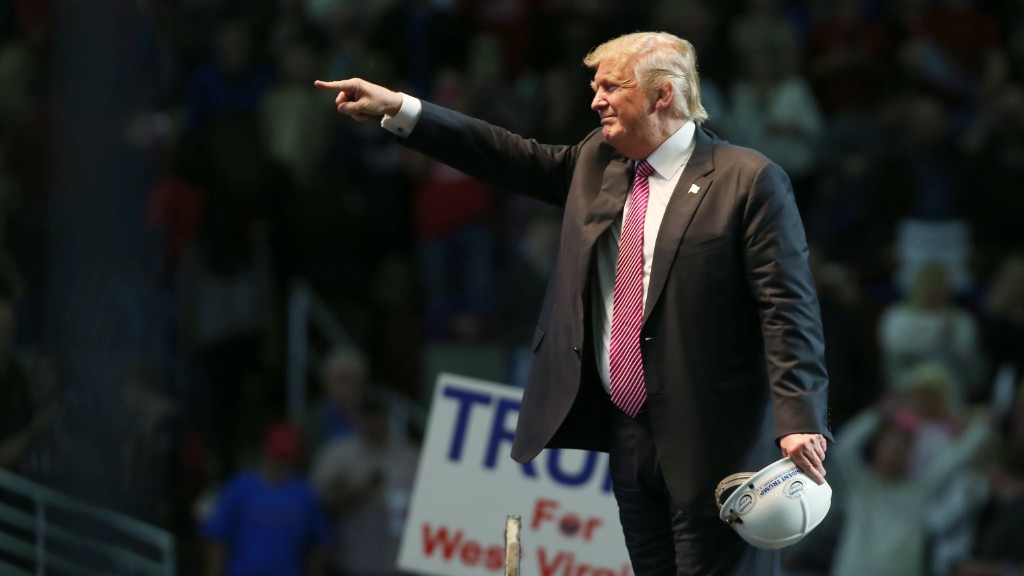
The next president of the United States has to prepare for a crisis, an economic one.
The U.S. is overdue for a recession. The economy has been growing for seven years now. The average Post World War II expansion cycle lasts less than five years, according to the National Bureau of Economic Research.
No one knows exactly when the next recession will hit. Predicting that is similar to forecasting what will happen to the stock market: It's easier said than done. But more and more experts believe the U.S. economy will falter in 2017 or 2018 -- just as Hillary Clinton, Donald Trump or Gary Johnson is trying to push his or her big agenda forward.
"I think the end of 2017 or the start of 2018 is quite possible for a recession," says Brad McMillan, chief investment officer at Commonwealth Financial. "All the indicators seem to be lining up for that time frame."
The business community is also worried.
"Our expectation is the economy will be relatively weak. The next president is going to need a plan right out of the gate," says John Engler, president of the Business Roundtable. The group has spoken with both Clinton's and Trump's campaigns about ideas to spur growth.
Related: Clinton predicted to beat Trump...due to economics
The good news is the next recession is unlikely to be anywhere near as rough as the Great Recession. If the next president and Congress take appropriate action, the downturn could be short lived.
The business community is pushing tax and immigration reform.
"We really need some deep policy thinking around some of those expansionary ideas," says Doug Oberhelman, CEO of Caterpillar (CAT) and chair of the Business Roundtable.
When economic turmoil hits, Democrats tend to favor more government spending. The idea is the government steps in for a while and spends more since businesses and consumers don't have as much cash and confidence. Clinton has already proposed a major infrastructure spending initiative that has been welcomed by economists and the business community.
Republicans tend to favor tax cuts to get more money into the hands of consumers and businesses in the hope that they will spend again. Trump has proposed a major tax cut for both individuals and corporations. It has received mixed reviews since it is so large, but business and congressional leaders believe they can negotiate with Trump.
Related: 10 key facts about the U.S. economy
During the financial crisis and Great Recession, the Federal Reserve, America's central bank, came to the economy's rescue. That may not be able to happen again. The problem is the Fed is close to "running out of ammo" to fight downturns.
Interest rates are still incredibly low by historical standards (only 0.25% to 0.5%). Typically, the Fed cuts those rates to boost growth, but there just isn't much to cut.
The White House and Congress will likely have to play a bigger role during the next recession especially if a crisis moment hits in 2017 or 2018 before the Fed has restocked its tool kit.
America's recovery has been a slow burn. The U.S. typically grows at over 3% a year. Since the Great Recession, the economy has struggled to accelerate much more than 2% a year.
"We're kind of stuck in a funk," says economist David Beckworth of Western Kentucky University. "This is the new normal."
Voters often ponder which candidate they want to have their hands on the nuclear weapons, but they should also consider this: which candidate do I trust to steer the economy in a storm?


